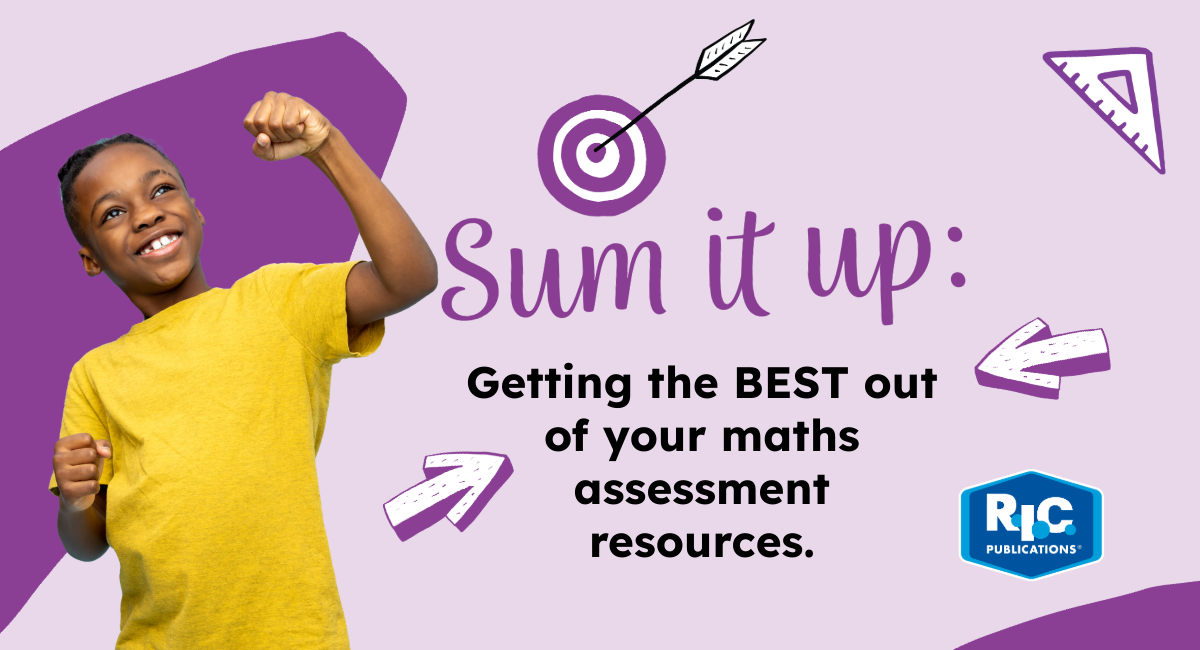- Monday 21 April 2025
- 0 Comments
Are you on the hunt for a new mathematics resource that is linked to the Australian Curriculum Version 9.0, and aligned to New South Wales, Victorian, and Western Australian curricula?
Our newest Australian Curriculum Primary Maths Assessment series will make assessing students’ understanding of mathematics sub-strands easy and offer easily photocopiable structured assessment pages for teachers to distribute.
The pre- and post-assessment pages allow teachers to monitor the progress of individual students. This is important as every student enters your classroom with a different level of understanding, skills, and gaps in their mathematics knowledge.
These assessments provide insight into students' strengths, weaknesses, and learning styles, which can then inform how the math program is introduced, structured, and tailored to meet individual needs.
Recognising Gaps
By using our Australian Curriculum Primary Maths Assessment resources at the start of a program, you can identify students’ existing knowledge gaps and misconceptions.
No two students are alike in their understanding of mathematical concepts. Some may have mastered basic operations but struggle with word problems, while others may understand geometry but have difficulty with algebraic expressions.
These insights are crucial for designing a program that doesn't rush over areas where students need more practice or linger too long on areas where they are already proficient.
Tailor Lesson Plans for Differentiated Learning
One of the major advantages of using a resource like this is that they enable teachers to tailor the lesson plans to students' individual needs. A well-rounded assessment can reveal the range of abilities in a classroom – some students may need more time and practice with fundamental concepts, while others may be ready to tackle more advanced topics.
Using assessment data, teachers can:
- Group students effectively: Form small, targeted groups based on students’ needs and progress. For example, students who have a solid grasp of multiplication can be placed together to tackle word problems, while students who need review can focus on improving multiplication fluency.
- Adapt instructional strategies: For students who are struggling with certain concepts, the program can be modified to include more hands-on activities, visual aids, or one-on-one support. For advanced students, enrichment activities that challenge their reasoning and problem-solving abilities can be introduced.
- Set realistic goals: Assessment data helps set clear, attainable goals for individual students or groups. For example, a goal might be for students to achieve fluency in addition and subtraction within the first few weeks before moving on to more complex concepts like multiplication.
Tracking Progress and Measuring Effectiveness
Math assessment resources provide valuable baseline data for teachers to track progress over time. By comparing students' initial performance with later assessments, teachers can measure how well the mathematics program is working for each student and the class as a whole.
Key benefits include:
- Monitoring growth: Teachers can track improvements in areas such as computational fluency, problem-solving abilities, and mathematical reasoning.
- Identifying at-risk students early: If certain students consistently struggle, it’s important to intervene early with additional support or tailored instruction before they fall further behind.
- Evaluating the program's success: Teachers can gauge whether the math program is helping students achieve the learning objectives. If the assessment results show no improvement, it may indicate that adjustments are needed in the approach, materials, or pace of the program.
Regular assessments provide ongoing feedback for both the teachers and students, fostering a more responsive and adaptable classroom environment.
Building Student Confidence
Students often have varying degrees of confidence when it comes to mathematics. Some students may approach math with enthusiasm, while others may struggle due to past experiences or fear of failure. Using math assessment resources at the start of a program can provide a low-stakes opportunity for students to demonstrate their abilities, without the pressure of formal testing.
By recognising both strengths and areas for improvement, math assessments allow students to begin the program with a sense of optimism and purpose.
Promoting Reflective Teaching Practices
Finally, using math assessment resources provides teachers with a reflective tool that can guide their practice. By analysing the results of these assessments, teachers can reflect on their own teaching methods, identify areas for professional growth, and refine their approaches to ensure the best possible outcomes for students.
Reflection prompts might include:
- Did the class perform well on the initial assessments? If not, how can I adjust the teaching approach?
- Are there common errors or challenges that need to be addressed?
- How can I differentiate instruction based on the data collected from these assessments?
This reflective process ensures that teachers are continually improving their practice and responding to students' needs in real time.
Adding it all together.
Incorporating math assessments before implementing a full mathematics program is essential to create a thoughtful, responsive, and personalised learning experience for all students.
These assessments provide valuable insights into students’ current knowledge, learning gaps, and misconceptions, enabling teachers to design and deliver a curriculum that is both challenging and supportive. By identifying learning gaps early, differentiating instruction, tracking progress, and building student confidence, math assessments set the stage for a more effective and engaging math program.
Ultimately, math assessment resources empower both teachers and students by providing a clear roadmap for success and ensuring that every student is positioned to thrive in their mathematical journey.
